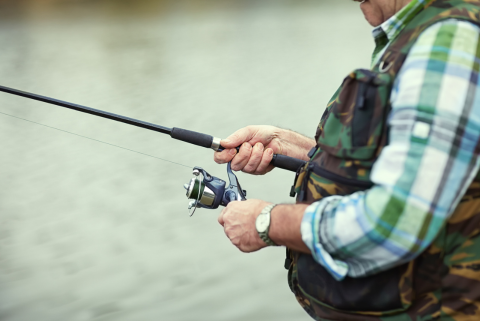
Stay Warm, Stay Protected
It is important that you call us to let us know about any solid fuel units in your home. This includes fireplace inserts. Even if you have done so in the past, it is important to notify your agent if you are using an insert to ensure proper protection. This will help you prevent a higher deductible charge in the event of a solid fuel heater or solid fuel fireplace insert fire-related claim.
Here are some additional tips to help you prepare:
Heating With a Solid Fuel (Corn, Pellets, etc.) Stove
Have your stove and chimney inspected and cleaned.
Make sure your stove or insert is properly installed and UL approved.
If your stove burns wood, use only seasoned wood for fuel, not green wood, artificial logs, or trash. Never burn Pine inside a home or outbuilding.
Inspect your pipes monthly for damage or obstructions and, if you find any, get it repaired and cleaned immediately.
Keep combustible objects three feet away from your wood stove.
Keep fireplace screens or doors closed when in use.
Electric Space Heaters
Buy only heaters with the Underwriter's Laboratory (UL) safety listing.
Make sure the heater has a thermostat control mechanism and will switch off automatically if the heater falls over.
Heaters should not be used as dryers or tabletops; do not dry clothes or store objects on top of the heater.
Remember space heaters need space; keep combustibles at least three feet away and unplug if the heater is not in use.
Kerosene Heaters
Buy only heaters with the Underwriter's Laboratory (UL) safety listing.
Never use a Kerosene heater inside a home - they produce carbon dioxide which is very dangerous. If using in a garage, or outbuilding, make sure the space is well ventilated.
Only use crystal clear K-1 kerosene, and never overfill. Never fill your heater with gasoline or camp stove fuel, both flare up easily.
Only use in a well-ventilated room.
By the Numbers
According to the U.S. Fire Administration (USFA), more homes burn in winter than at any other time of the year, which result in an average of 945 deaths, 3,825 injuries, and $1.7 billion in property losses each year. Thirty-six percent of those fires are caused by heating accidents.
Let us do all we can to prevent fires this winter and to keep our homes and our families safe and warm here in Michigan. Make sure you have a UL listed fire extinguisher accessible in your home. Install smoke detectors on every level of your home; and test them monthly. It is also a good idea to map out an emergency escape route and practice until everyone can get out of the house in under two minutes.
To learn more about heating with solid fuels, please download our Wood Heat: The Safe Way brochure, which was prepared in conjunction with Lansing Community College’s Fire Safety School.
Since fireplaces regularly build up creosote in their chimneys, have your chimneys cleaned frequently and inspected for obstructions and cracks.
Check to make sure the damper is open before starting any fire. Never burn trash, paper, or green wood in your fireplace.
Use a screen heavy enough to stop rolling logs and big enough to cover the entire opening of the fireplace to catch flying sparks.
Never wear loose-fitting clothes near any open flame and make sure the fire is completely out before leaving the house or going to bed.
Store cooled ashes in a tightly sealed metal container outside the home.
Swing by our agency, located at 403 S Clinton St. Grand Ledge, MI 48837, and we can provide you with a Solid Fuel Safety Guidebook produced by Farm Bureau Insurance and in conjunction with Lansing Community College.



